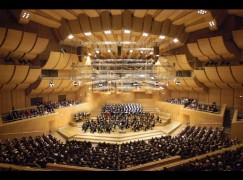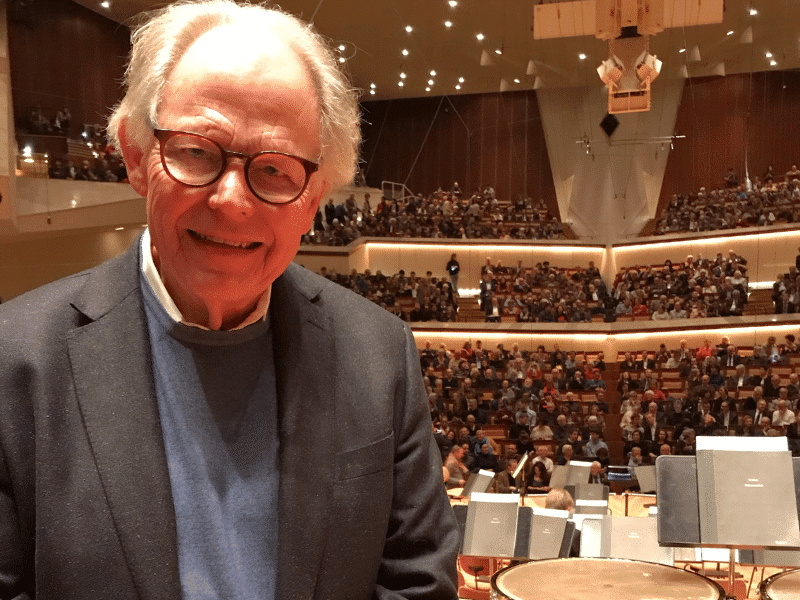Bavarian Radio chiefs hurl 13 angry questions at prime minister
mainFollowing a blast from Anne-Sophie Mutter, the heads of Bavarian Radio’s orchestras have issued a public onslaught on the minister-president, Horst Seehofer, demanding to know why he went back on his commitment to build a new concert hall. We publish the questions below in German (feel free to translate, if a nyone has the time). It is very rare for a public authority in German to challenge an elected leader with brutal frankness.

Das Symphonieorchester des Bayerischen Rundfunks hat die am vergangenen Montag von Ministerpräsident Horst Seehofer und Oberbürgermeister Dieter Reiter vorgestellten Pläne zum Thema Konzertsaal in München mit Entsetzen und Unverständnis vernommen. Das Abrücken vom seit vielen Jahren ins Auge gefassten, notwendigen Bau eines neuen, zusätzlichen Konzertsaals gefährdet nicht nur die Zukunft des Symphonieorchesters als Spitzenensemble, sondern setzt auch Münchens und Bayerns Ruf als international bedeutende Musikmetropole aufs Spiel.
Wir wollen den verantwortlichen Entscheidungsträgern in diesem Zusammenhang folgende Fragen stellen:
Welche Bedeutung messen Sie dem Symphonieorchester des Bayerischen Rundfunks für das Musikleben in München und Bayern zu?
Warum waren bei der Erarbeitung des vorgeschlagenen Modells nur die Münchner Philharmoniker, aber nicht die privaten Konzertveranstalter und nicht das Symphonieorchester vertreten?
Weshalb ignorieren Sie die Ergebnisse einer hochrangigen Expertenkommission und entscheiden sich für ein ungeprüftes Modell?
Warum soll den Münchner Orchestern und Konzertveranstaltern auch für die kommenden Jahrzehnte nur eine unzureichende Infrastruktur zur Verfügung stehen?
Warum sagen Sie nicht offen, dass Ihre Pläne substanzielle Einschränkungen für ca. 40.000 Klassik-Abonnenten mit sich bringen werden?
Wie rechtfertigen Sie die massiven negativen Auswirkungen auf die privaten Konzertveranstalter?
Warum reagieren Sie auf das rasante Bevölkerungswachstum im Großraum München und die erheblich steigenden Konzertbesucher- und Abonnentenzahlen mit einer Reduktion der Konzertsaal-Kapazitäten?
Wer sind die von Ihnen angesprochenen „Fachleute“, die – allen Erfahrungen der letzten Jahre zum Trotz – einen Publikumsrückgang im Münchner Konzertleben prophezeihen?
Auf welchen Fakten basieren deren Einschätzungen?
Wie sollen die Münchner Orchester im weltweiten Wettbewerb konkurrenzfähig bleiben, wenn die Arbeits- und Planungsbedingungen in München mit den sich stets weiterentwickelnden internationalen Standards nicht mehr mithalten können?
Wie können Sie es verantworten, dass angesichts einer Überbelegung der vorhandenen Konzertsäle die Musikvermittlungs- und Jugendarbeit der Münchner Orchester in Zukunft nicht weiter ausgebaut werden kann?
Wie rechtfertigen Sie die hohen öffentlichen Ausgaben, die Ihre Pläne vorsehen, obwohl diese weiterhin eine Beschränkung des Musiklebens in München festschreiben?
Warum nehmen Sie die Chance nicht wahr, durch einen zusätzlichen Konzertsaal der Bayerischen Landeshauptstadt eine führende Position als Musikmetropole im 21. Jahrhundert zu sichern?
München, den 04.02.2015
Der Orchestervorstand
________________________________________________





Comments